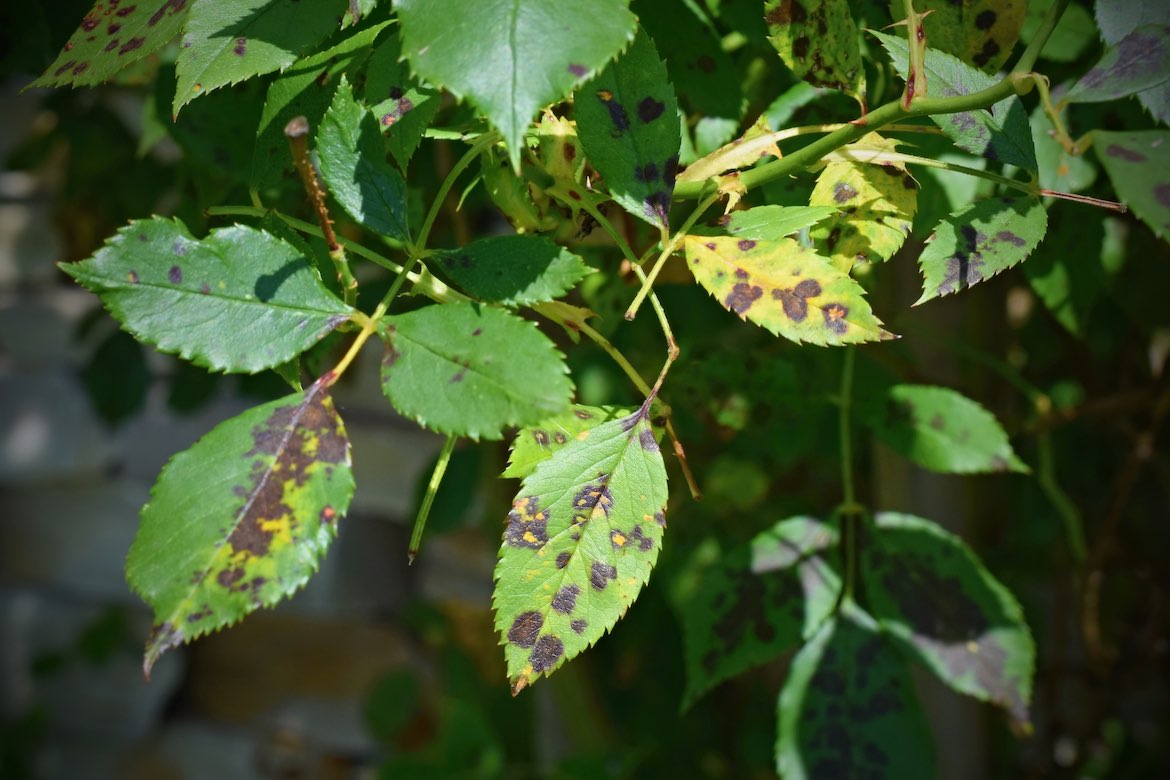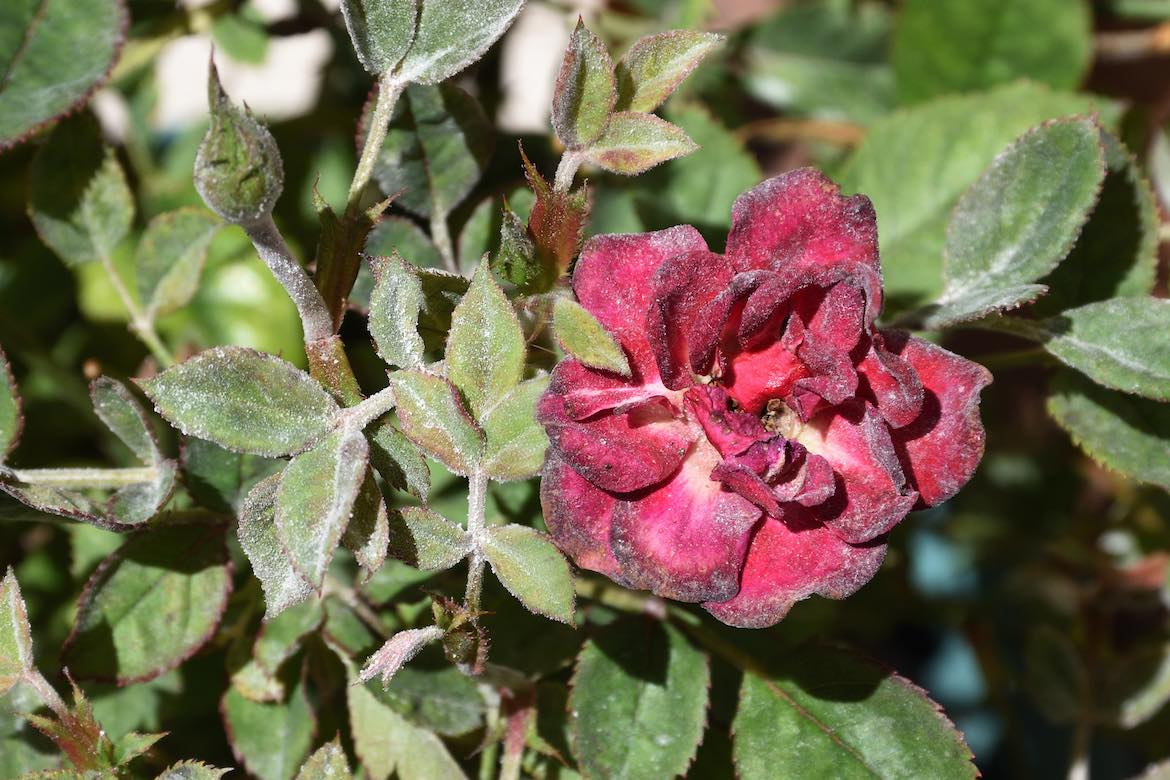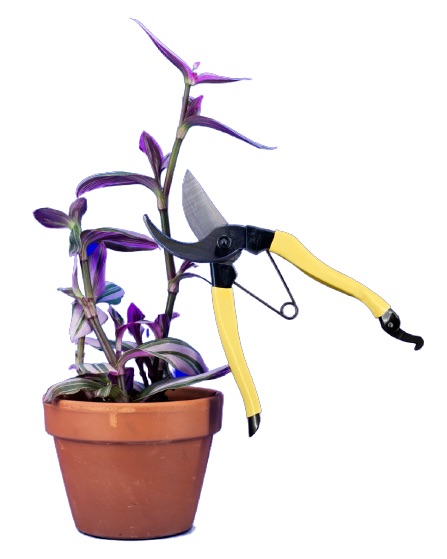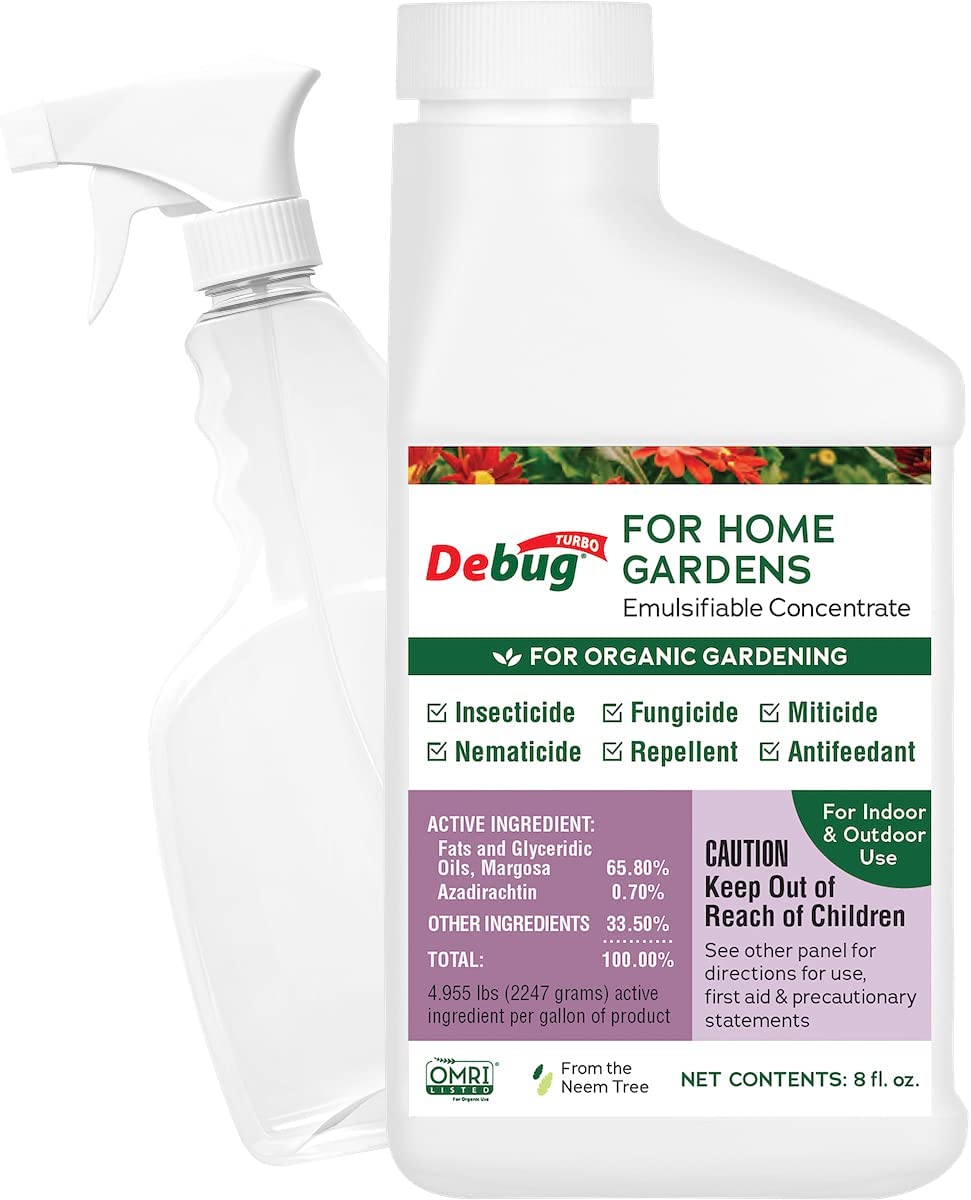How To Spot, Treat, and Prevent Sick Roses, According to a Rosarian
"If you're not careful with the kinds [of roses] that you choose, they have a tendency to be prone to disease," says Wallace. However, being disease-prone doesn't make them fragile. "Roses are exceptionally hardy by the way. That's why I think they're good beginners plants."
Wallace explains that there are two main diseases that roses often get.

“The most common one is black spot, especially on the east coast,” says Wallace. “And it looks exactly like the name, it’s black spots on the leaves. And eventually, if it’s really bad, eventually the leaf will fall off and if the infestation is really bad, then the entire shrub can defoliate. That won’t actually kill the shrub in one season, but if it happens over successive seasons it will weaken the shrub and eventually kill it.

“There’s another common one called powdery mildew and it kind of looks like a light white frosting on the growing tips of the roses,” says Wallace. This fungus can disfigure the leaves and make the rosebuds open improperly. Like black spot, severe cases of powdery mildew can cause the plant to completely defoliate.
If your roses get sick, rose bush disease treatment isn't too difficult. Wallace says to start by cutting away any diseased canes with a good pair of pruning shears ($45). "Even if it's not disease-prone, you have to have pruners because they need pruning," he says.
Weekly neem oil sprays ($26) and baking soda sprays can help treat and prevent rose diseases. "When you're applying neem oil and baking soda sprays or anything like that, you have to spray the leaves," says Wallace.
Where your rose is planted can also play a role in whether or not it gets sick. Adequate sunlight and the right soil can also help prevent disease. "A full day of light is preferable to a half-day, but at least a half-day is what you need for the sun," he says. So you may consider moving your bush if it's not getting enough sun.
- Will Wallace, rosarian (expert rose gardener) and curator of the Cranford Rose Garden in the Brooklyn Botanic Garden
Typically, rosarians say you need sandy loam soil, which is a mix of sand, silt, and clay. "But honestly, most any regular garden soil will do," he says. The most important part is making sure your roses have good drainage and a slightly acidic pH, somewhere around 6.5. If your roses aren't doing well and you suspect soil pH might be an issue, you can measure the pH of your soil using this Sonkir Soil Moisture/Light/pH Tester ($15)
Finally, just make sure you're properly caring for your roses. Water them near the base instead of overhead, prune them regularly, and feed them.," says Wallace.
Oh hi! You look like someone who loves free workouts, discounts for cult-fave wellness brands, and exclusive Well+Good content. Sign up for Well+, our online community of wellness insiders, and unlock your rewards instantly.
Loading More Posts...


